Melatonin is a naturally occurring hormone in the body that helps regulate the sleep-wake cycle. For almost 30% of American adults struggling with insomnia, taking melatonin supplements has become a popular remedy to improve sleep hygiene. However, taking too much melatonin could cause unwanted side effects.

Overconsumption of melatonin could lead to daytime drowsiness, irritability, and mild anxiety. Side effects of melatonin are known to be short-lasting, but it’s important to learn more about melatonin dosing and its effects to avoid taking too much.
What is Melatonin?
According to a paper by the University of North Carolina’s Neurology department:
Melatonin is a substance produced by the pineal gland in the brain. This gland is about the size of a kernel of corn. It produces melatonin in response to low light or dark environments. Melatonin levels are very low during the day and increase when a person is in a dark place getting ready for sleep. Melatonin also declines with age. By the time a person reaches fifty the melatonin levels are less than half of the levels produced in childhood.
Melatonin helps regulate the body’s circadian rhythms. Circadian rhythms are the body’s internal clock, a natural cycle of behaviors the body goes through in 24 hours. The sleep-wake cycle is one of the most important patterns of this rhythm, and melatonin supports its regulation.
Melatonin promotes healthy sleep by lowering body temperature and causing drowsiness. Melatonin levels rise at night and stop during the day, though exposure to light at night could prevent its production. Dimming lights, turning off electronics, and reducing caffeine intake at night are just some ways to naturally boost melatonin production and help you fall asleep.
Some people struggle with excess melatonin production, especially in the winter months. This could disrupt other hormones and cause daytime sleepiness, fatigue, and brain fog. Lack of sunlight and a poor diet can abnormally elevate melatonin levels. A review by the National Library of Medicine shows that chronic stress can also cause melatonin excess.
Melatonin deficiency is a much more common struggle than melatonin excess. Sleep disruption, trouble falling asleep, and many other sleep disorders are correlated with low melatonin levels. That’s why people look for sleep aids with melatonin to help improve sleep. According to the Sleep Foundation, melatonin supplements are America’s most popular supplement. Many sleeping pills result in negative, long-term side effects. Since the hormone melatonin is already part of healthy, natural sleeping, this supplement is favorable to users.
Most melatonin health products are made synthetically in a lab. Some melatonin companies will use “natural” ingredients to produce melatonin, but this means using an animal or microorganism byproduct. Synthetic melatonin is free of contaminants and is identical to that which is already in the body.
When you buy our high-quality melatonin gummies, you’re getting a vegan, third-party lab-tested product with natural ingredients. Our reliable dose of melatonin ensures you’ll fall asleep faster and stay asleep longer, combating insomnia and calming your racing mind before bed.
What Happens If You Take Too Much Melatonin?
There is no known lethal dose of melatonin, but there is a chance you can overdose on melatonin and experience some unwanted side effects. Too much melatonin could disrupt the circadian rhythm instead of supporting it.
Apropos of melatonin side effects, the above-mentioned UNC paper says:
Melatonin has very few side effects. People have taken as much as 75 milligrams of melatonin in carefully monitored studies with no signs of toxicity. The only consistent side effect of high doses has been drowsiness occasional headache, stomache aches, agitation excessive dreaming and a slower reaction time. Additionally, the Food and Drug Administration reports that in the…years that melatonin has been available for sale over-the-counter, no alarming negative side effects have been reported. Some people who have experienced one or more of these reactions have found that taking a lower dose or switching to a different brand, or taking a brand that does not contain vitamin B6, seems to help.
Too much melatonin ingestion could result in symptoms like:
- Headaches
- Nightmares
- Nausea and vomiting
- Daytime drowsiness
- Increased irritability and anxiety
- Induced depression
- Trouble breathing
Melatonin side effects could also impact those with other health conditions when taking too much. According to Mayo Clinic, melatonin can act as a blood thinner when taken in high doses. People who take anticoagulants could be at increased risk of bleeding if they don’t correctly dose melatonin.
People with epilepsy should also proceed with caution. Some medical news reports show that melatonin can help people with epilepsy with both sleep and seizure frequency. However, improper dosing could cause an increase in seizures instead.
Too much melatonin could cause low blood pressure. People who experience hypotension and are taking medication should have a sleep advisor assist them in avoiding taking too much.
Those who have restless leg syndrome (RLS) should also be careful with melatonin use because it inhibits the secretion of dopamine. People with RLS need an increase in dopamine production to reduce symptoms, potentially making it counteractive to melatonin.
If you think you’re experiencing a melatonin overdose, keep in mind that melatonin supplements are known to leave the body quickly. This means melatonin’s side effects are short lasting. A review by the American Academy of Sleep Medicine mentions that melatonin is not linked to long-term serious side effects. Discontinuing your use of melatonin and letting it clear out of your system is a safe option.
However, if unwanted symptoms persist, contact poison control or seek medical attention. The higher the dose of melatonin taken, the longer it will take to be eliminated from the body completely.
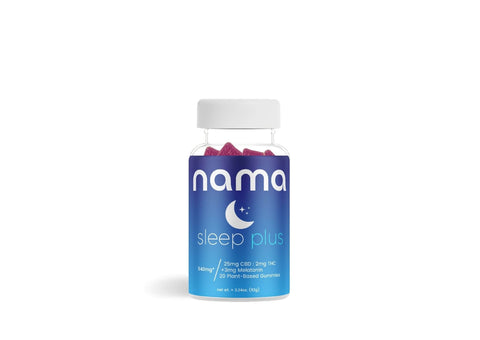
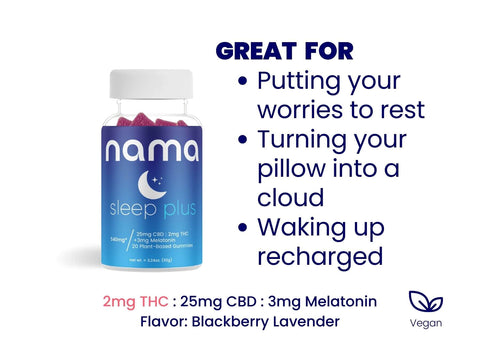
THC: 2 mg | CBD: 25 mg | Melatonin: 3 mg


THC: 10 mg | CBC: 10 mg | CBD: 10 mg | CBG: 5 mg | CBN 5mg
How Much Melatonin is Safe to Take?
When starting out with melatonin supplements, you want to take the lowest amount possible to meet your needs. One to five milligrams (mg) is considered an appropriate range for a melatonin dosage, but you can start with even less. Some supplements have microdoses of melatonin as low as 0.1 mg per serving. 0.3 mg is comparable to the amount of melatonin our body naturally produces. However, people have been known to take up to 75mg of melatonin at a time with no serious adverse effects.
Taking melatonin for sleep is safe in low to moderate doses. It can be purchased over the counter, but since it’s considered a dietary supplement by the FDA, there’s less regulation on the substance.
Taking between five to ten milligrams of melatonin is considered the maximum amount for healthy adults. You can buy melatonin products with more than 10 milligrams, but should not be taken without seeking guidance from a healthcare professional or doctor before taking it.
A sleep specialist or expert could offer you recommended doses of melatonin since finding the right amount depends on the person. To use melatonin safely and effectively, consider a few things before trying it as a form of sleep medicine, such as:
- The type of melatonin product you’re using
- Your reason for wanting to use melatonin
- Age and gender
- Your tolerance to and allergic reaction risk to dietary supplements
- How other conditions and medications may interact with melatonin
Some people take melatonin in pill form or as a tincture under the tongue, but gummies are especially popular. Our melatonin gummies for adults offer fast-acting sleep results in tasty strawberry flavors. We guarantee our easy-to-dose, plant-based edibles will not leave you feeling groggy the next day.
Taking Melatonin with Cannabis for Sleep
If you’re looking to rest your mind, sleep like a baby, and wake up feeling recharged, you’ve got to try our fruit-filled, vegan Sleep Plus Gummies. This full-spectrum CBD product is a customized blend of 100% American hemp-derived THC and CBD with 3 mg of melatonin.
Research shows that microdosing THC for sleep reduces sleep latency and makes it easier to fall asleep. With just 2 mg of THC per serving, our edibles let you reap the benefits of microdosing THC without experiencing mind-altering effects. What’s more, all of our full spectrum CBD gummies are federally legal in compliance with the 2018 Farm Bill and contain no more than 0.3% THC by dry weight per serving.
Individual states do have their own restrictions on Delta 9 THC. To find out more about THC’s legality in your state, read our guide to see in which states Delta 9 is legal.
How Long Do the Effects of Melatonin Last?
The effects of melatonin can last anywhere between four and eight hours, with their peak occurring two to four hours after consumption. Melatonin absorbs rapidly in the body, with a half-life of about 20-40 minutes. This means it takes about 20-40 minutes after the initial dose of melatonin for it to start processing and breaking down to leave the system.
How Long Does Melatonin Take to Kick in?
How long melatonin takes to kick in depends on how you’re consuming it. Edibles, capsules, and chewable melatonin supplements should be taken 30 minutes to two hours before bedtime to give it time to break down in the body before entering the bloodstream. If you’re using a tincture under the tongue, the onset time is much quicker because it does not have to go through a digestive process in the body. You can expect to feel the effects in as little as 15 minutes.
Is It Safe to Take Melatonin Every Night?
Though melatonin is generally safe for nighttime consumption, these supplements are not meant to be a long-term fix for sleep issues. Science is calling for more research on the long-term impact of melatonin on the body. Since melatonin is naturally occurring, taking supplements could potentially downregulate and influence how the body produces the hormone on its own.
While you could use melatonin every night if you are dosing correctly, it is recommended to take it when needed rather than as a nightly routine.
Who Should Take Melatonin?
Melatonin is a preferred, natural aid for improving sleep quality after short-term disruption and treating symptoms of some circadian rhythm disorders. An analysis of melatonin for treating sleep disorders shows it is safer than other commonly prescribed sleep medications.
Melatonin for Delayed Sleep-wake Phase Disorder (DSWPD)
Delayed sleep-wake phase disorder is an issue with the body’s internal clock, delaying one’s ability to fall asleep by two or more hours. It can also make it hard for people to wake up and cause grogginess during the day. Medical research shows that melatonin improves the sleep-wake rhythm of people with DSWPD.
Melatonin for Jet Lag
Jet lag occurs when people cross time zones and have to adjust to new sleep schedules due to changes in daylight hours. This can cause fatigue, nausea, and mood changes. Medical reviews mention melatonin as being incredibly effective for preventing and reducing symptoms of jetlag.
You can take melatonin for 3-5 days after arriving at your destination, or 3-5 days after coming home to get your cycle back into rhythm. If you travel often for work or other obligations, consider using a sleep calculator to help optimize your sleep based on your lifestyle and preferences.
Melatonin for Shift Workers
Night shift workers are prone to experiencing issues with sleep because melatonin production stops when exposed to daylight. If you’ve got to get your body adjusted to a shift in work schedule from day to night, melatonin can help improve the ability to fall asleep during daylight hours.
Melatonin for Anxiety and Seasonal Depression
Seasonal depression refers to depressive symptoms that occur around the same time annually, generally in winter months. This is believed to be linked to circadian rhythms being altered with less sunlight exposure during that season. Studies have shown that people with seasonal depression who took melatonin experienced an improvement in symptoms.
Product QUIZ
Need help deciding what product is best for you? Take our quiz, just three questions until your perfect match!
Is Melatonin Safe for Children?
Melatonin is safe for kids under the care of a pediatrician. Studies show that melatonin can help children with ADHD fall asleep faster and reduce symptoms of insomnia. Many children with autism also take melatonin to help them sleep longer. A study found that melatonin could help children with autism receive more hours of sleep with minimal to no side effects.
However, the FDA does not regulate melatonin as a medical treatment for children's sleep disorders. Consult your healthcare provider about the advisability of giving melatonin to children.
Is Melatonin Safe During Pregnancy?
Pregnant women are at a higher risk of experiencing insomnia and sleep issues. Despite reports that between 50-80% of pregnant women have trouble sleeping, melatonin is not the recommended fix. There is not enough research on the impact of melatonin on pregnant women to determine its effects and safety. However, women with health issues like preeclampsia may be advised by their healthcare provider to use low doses of melatonin.
Read our guide to learn more about melatonin and sleep during pregnancy.
Melatonin FAQ
Anything more than 10 mg of melatonin should be taken with caution to avoid experiencing unwanted side effects. Children under 12 who take more than 5 mg of melatonin could experience complications.
Taking too much melatonin could cause fatigue, daytime drowsiness, grogginess, and nausea. Some people have also mentioned experiencing nightmares, increased anxiety, and short-term depression.
It is possible to overdose on melatonin and see signs of negative effects. However, melatonin is not known to cause long-term issues. It leaves the system quickly which lowers the possibility of serious issues.
The side effects of taking too much melatonin are short-lasting. Melatonin leaves the body four to eight hours after consumption and any unwanted side effects should reduce in that time. If symptoms of an overdose last for more than two days after discontinuing use, you may want to see a doctor for help.
Melatonin can be purchased in a wide range of doses as low as 0.1 milligrams of melatonin to 10 or more milligrams. 0.3 milligrams of melatonin is comparable to what the body naturally produces, so some will say that’s the desired dose. 3–5 milligrams of melatonin is still considered a low dose and is most often the amount sold. Adults can take 10 milligrams or more of melatonin, but it is not recommended without the guidance of a healthcare professional.
20 mg of melatonin could be too much for some people. Unless you’ve been diagnosed with a sleep disorder or were prescribed that dosage amount, it is not recommended to take 20 mg of melatonin.
It can be safe to take 10 mg of melatonin every night. It depends on why you’re taking the supplement and if your doctor gave their recommendation to do so. 10 mg of melatonin is considered a high dose and should be taken with caution.
Top Sellers
New? Start with our Ultimate Sampler!

THC: 10 mg | CBC: 10 mg | CBD: 10 mg | CBG: 5 mg | CBN 5mg
Citations:
Melatonin During Pregnancy | Sleep Foundation. (2021, June 25). Sleep Foundation. https://www.sleepfoundation.org/melatonin/pregnancy
Melatonin in autism spectrum disorders: a systematic review and meta-analysis - PubMed. (2011, September 1). PubMed. https://doi.org/10.1111/j.1469-8749.2011.03980.x
Sleep hygiene and melatonin treatment for children and adolescents with ADHD and initial insomnia - PubMed. (2006, May 1). PubMed. https://pubmed.ncbi.nlm.nih.gov/16670647/
The circadian basis of winter depression - PubMed. (2006, May 9). PubMed. https://doi.org/10.1073/pnas.0602425103
Melatonin for the prevention and treatment of jet lag - PubMed. (2002, January 1). PubMed. https://doi.org/10.1002/14651858.CD001520
van Geijlswijk, I. M., L. M. Korzilius, H. P., & Smits, M. G. (n.d.). The Use of Exogenous Melatonin in Delayed Sleep Phase Disorder: A Meta-analysis. PubMed Central (PMC). https://doi.org/10.1093/sleep/33.12.1605
Ferracioli-Oda, E., Qawasmi, A., & Bloch, M. H. (2013, May 17). Meta-Analysis: Melatonin for the Treatment of Primary Sleep Disorders. PubMed Central (PMC). https://doi.org/10.1371/journal.pone.0063773
Vaillancourt, R., Gallagher, S., Cameron, J. D., & Dhalla, R. (2022, April 15). Cannabis use in patients with insomnia and sleep disorders: Retrospective chart review. PubMed Central (PMC). https://doi.org/10.1177/17151635221089617
Farm Bill. (n.d.). Farm Bill | USDA. https://www.usda.gov/farmbill
Troy, D. (2021, May 6). Melatonin - Sleep Education. Sleep Education. https://sleepeducation.org/patients/melatonin/
Effect of melatonin on seizure frequency in intractable epilepsy: a pilot study - PubMed. (2012, December 1). PubMed. https://doi.org/10.1177/0883073811435916
Melatonin. (2021, March 3). Mayo Clinic. https://www.mayoclinic.org/drugs-supplements-melatonin/art-20363071
Can You Overdose on Melatonin? | Sleep Foundation. (2021, May 13). Sleep Foundation. https://www.sleepfoundation.org/melatonin/melatonin-overdose
Chronic stress decreases the expression of sympathetic markers in the pineal gland and increases plasma melatonin concentration in rats - PubMed. (2006, June 1). PubMed. https://doi.org/10.1111/j.1471-4159.2006.03787.x
Russel J. Reiter and Jo RObinson Bantam. (n.d.). Melatonin: Your Body’s Natural Wonder Drug. https://www.med.unc.edu/neurology/wp-content/uploads/sites/716/2018/05/MELATON.pdf
nama CBD FDA & Legal Disclaimer
Our products are not intended to diagnose, treat, cure, or prevent any disease. They are not a replacement for prescription medications and have not been evaluated by the FDA (Food and Drug Administration).
The information provided on this website does not, and is not intended to, constitute legal advice or any statements of the status of any laws. Any information, content, and materials available on this site are for general informational purposes only, and are not intended to be relied upon for any purpose.
Readers of this website should contact their attorney to obtain advice with respect to any particular legal matter including decisions on what products are, or are not, legal to sell, possess, or consume. No reader, user, or browser of this site should act or refrain from acting on the basis of information on this site without first seeking legal advice from their own counsel in the relevant jurisdiction.
Only your individual attorney can provide assurances that the information contained herein – and your interpretation of it – is applicable or accurate for your particular situation. Use of, and access to, this website or any of the links or resources contained within the site do not create an attorney-client relationship between the reader, user, or browser, and website authors, contributors, contributing law firms, or committee members and their respective employers.
About
Learn
Join us on this journey

© Copyright 2026 nama Products LLC. All Rights Reserved.
†These statements have not been evaluated by the Food and Drug Administration. These products are not intended to diagnose, treat, cure or prevent any disease. All information presented here is not meant as a substitute for or alternative to information from health care practitioners. Please consult your health care professional about potential interactions or other possible complications before using any product.
††The information provided on this website does not, and is not intended to, constitute legal advice or any statements of the status of any laws. Any information, content, and materials available on this site are for general entertainment purposes only, and are not intended to be relied upon for any purpose.

By clicking ‘Yes,’ you agree to our
Terms & Conditions and Privacy Policy
123 John Doe Street
Your Town, YT 12345
Store Hours
Sun: Closed
Mon-Fri: 9:00 - 17:00
Sat: 10:00 - 13:00
What to expect at pickup
Closed
Closing at 5pm
Closing at 5pm
Closing at 5pm
Closing at 5pm
Closing at 5pm
Closing at 1pm

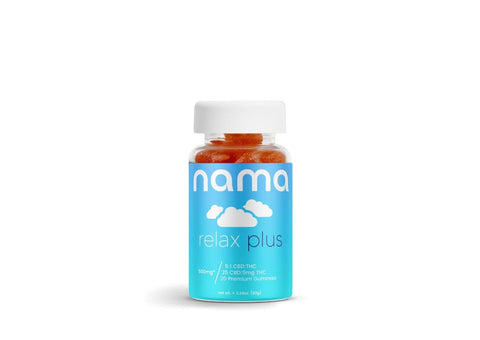

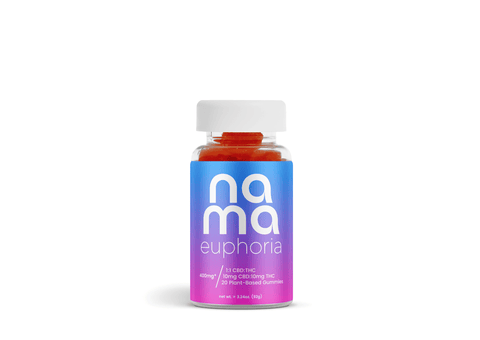

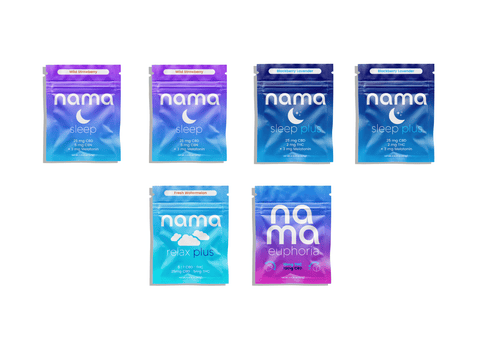

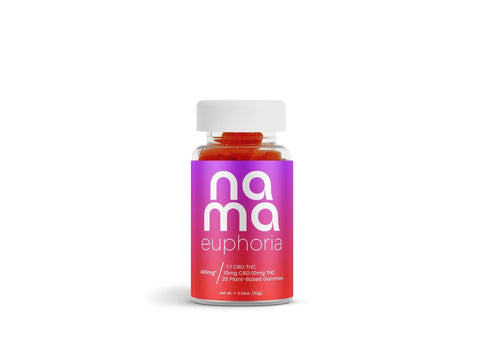

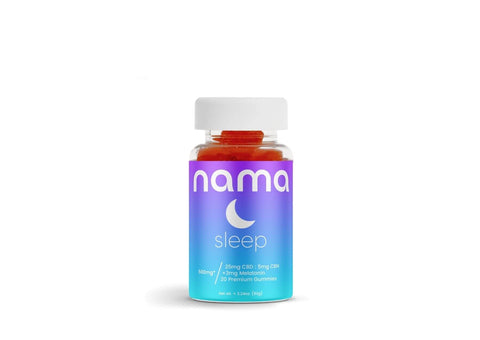

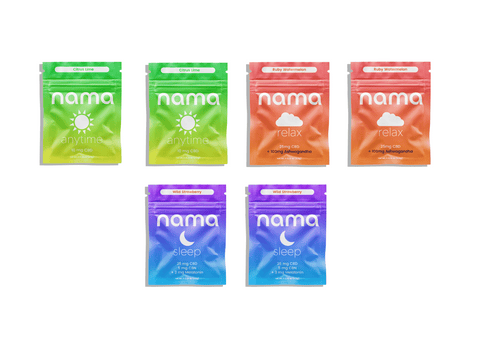








![Buzz Packs™ [THC and CBD Powder Drink Mix]](http://www.namacbd.com/cdn/shop/files/nama_buzz_packs_thc_drink_pack_white_background.png?v=1769586244&width=480)
![Buzz Packs™ [THC and CBD Powder Drink Mix]](http://www.namacbd.com/cdn/shop/files/Buzz_Packs_Label.png?v=1769586244&width=480)
![Buzz Drops™ [THC Drink Drops]](http://www.namacbd.com/cdn/shop/files/nama_thc_buzz_drops.png?v=1711412866&width=480)
![Buzz Drops™ [THC Drink Drops]](http://www.namacbd.com/cdn/shop/files/buzz-drop-wine-comparison.png?v=1736882023&width=480)
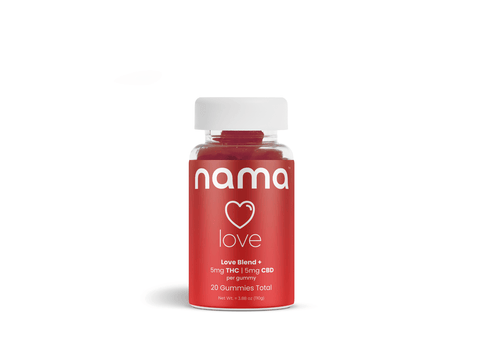



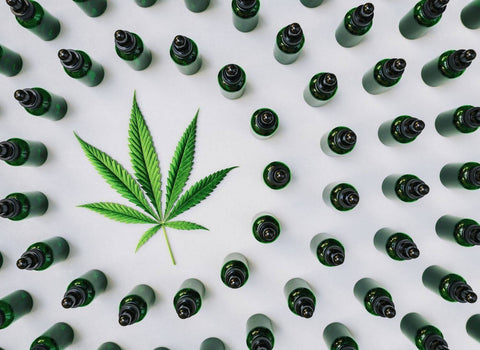


Comments (0)
There are no comments for this article. Be the first one to leave a message!